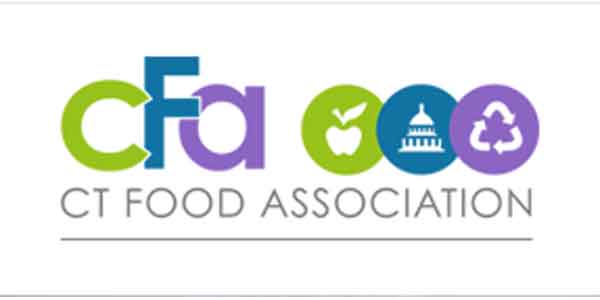In Mississippi, Connecticut and Maryland, grocers and their advocates are taking on the liquor industry as they seek to undo restrictions on sales.
When Oklahoma started allowing grocery stores to sell full-strength beer and wine in October 2018, Homeland wasn’t expecting beer sales to pour in.
The grocer, which sold low-strength beer previously, saw a surprising double-digit increase in beer sales, along with larger basket sizes and incremental wine growth for a year after the law changed, said Marc Jones, president and CEO of HAC, the company that runs the Homeland banner. “If we look at the past year and the effects of the pandemic, for us both grew by more than 20% in 2020 although wine grew faster than beer,” Jones wrote in an email.
Grocers in numerous other states where alcohol is banned or restricted in stores would love to see a similar lift. Buoyed by strong sales over the past year and by the prospect of both higher margins and customer satisfaction, retailers and their supporters are redoubling their push for changes that will expand their alcohol selections.
In Maryland, for example, a new crop of state lawmakers offers an opening for legislation that would allow alcohol sales in more grocery stores, advocates say. In Connecticut, lawmakers are pushing several bills aimed at bringing wine to store shelves.
Laws centered on alcohol sales in grocery stores vary across states and counties, with restrictions ranging from maximum alcohol content allowed to the number of alcohol licenses retailers can have to the types of alcohol they can sell. Several states have begun easing those restrictions in recent years. Not long after Oklahoma began allowing full-strength beer sales, Kansas raised the alcohol content from 3.2% by volume to 6% for beer sold in grocery stores, while Colorado allowed grocers to offer full-strength beer. Over the past year, the pandemic has increased demand for one-stop shopping among customers and prompted legislators to loosen up alcohol rules around takeout drinks and alcohol delivery.
Still, grocers in about a dozen states that restrict sales of wine, beer or both in their stores face an uphill battle against industry and legislative opponents. Grocery Dive explored the support behind bills proposed in three states and what supporters see as the path forward.
‘Stars have aligned’ for change in Maryland
Giant Food has 96 stores in Maryland but only three sell beer and wine, Jeffrey Pygott, Giant Food’s category manager of beer and wine, wrote in an email. That’s due to a 1978 law that banned chain stores and supermarkets from selling alcohol. Several stores were grandfathered in, allowing them to keep selling alcohol.
Additionally, only Maryland residents can get alcohol licenses, which are limited to one per person.
Advocates of changing Maryland’s laws say it’s inconvenient and confusing for shoppers. The Maryland Retailers Association and Marylanders for Better Beer & Wine Laws (MBBWL), a group of consumers, producers, retailers, distributors and restaurateurs started in 2005, have been rallying support behind lifting the restrictions. The Maryland Retailers Association launched a website last year to inform people about the issue and has been asking for supporters to call legislators and sign a petition. The MBBWL is also asking people to contact elected officials and to call chain stores to voice support for expanded alcohol choice.
“We’ve been polling it for years, and the number just keeps going up support-wise in our state,” said Cailey Locklair, president of the Maryland Retailers Association, noting that roughly 70% of respondents consistently support changing the alcohol laws.
A study done by economic research firm John Dunham and Associates and commissioned by the Maryland Retailers Association, meanwhile, estimated that opening up beer and wine sales to more food retailers in Maryland would bump overall sales by nearly $193 million, add 760 new jobs and result in $24.1 million of additional tax revenues.
But proponents face strong opposition from package stores claiming competition with grocers would lead to mom and pop liquor stores closing. Some legislators have raised concerns about the possible impacts on alcohol abuse and underage drinking. Supporters are also up against the distributors that have a “stranglehold” on alcohol variety and pricing, Locklair said.
Locklair and MBBWL President Adam Borden said they are hopeful the new faces in the Maryland General Assembly will spark changes. Following the 2018 election, 60 of the 188 members of the Maryland General Assembly were newcomers, and in 2020 leadership changed in the Senate and House.
“The stars have aligned on this issue,” Locklair said.
The push for new regulations will still be challenging, however. Two Democrats who joined the state legislature in 2019 proposed legislation this year that would entice grocers to open in food deserts by allowing them to sell beer and wine. The House version of the bill received an unfavorable recommendation from the alcoholic beverages subcommittee, slashing the legislation’s chances of advancing, Borden said. By mid-March, the House version of the bill was withdrawn.
“It’s not uncommon that legislation takes two or three years to eventually become law,” Borden said. There are two possible paths forward: Politicians could take up the issue again in a future legislative session or the legislature could decide to put the issue on the ballot. Locklair said proposed bills are the “best bet” to tackle alcohol sales, noting that the referendum process is more challenging for the issue.
In the meantime, Giant Food is waiting for the day it can start selling beer and wine at more of its stores, Pygott said. For The Common Market, a grocery co-op with two stores in Frederick County, Maryland, being able to sell alcohol, which would be mostly local and organic, would likely increase sales by 5% to 10%, John Beutler, the head of the co-op’s board of directors, estimated.
Booze battle may come to Mississippi ballots
Mississippi’s “very restrictive” alcohol laws likely account for why it only has one Costco and one Whole Foods Market, and why Trader Joe’s, which is known for its private-label alcohol offerings, hasn’t yet come to the state, said Hunter Estes, communications director at the Mississippi Center for Public Policy, a conservative think tank.
The state’s distribution of wine and liquor is controlled through a single state-run warehouse. Grocery stores can sell beer and light wine under 5% alcohol by volume in stores, but must have a separate entrance for full-service liquor stores, which can sell wine. Each entity can only have one liquor store in the entire state.
The current restrictions are “having an adverse effect on the economy” because grocery stores are often reluctant to open or expand in Mississippi without alcohol sales, Estes said.
Mississippi’s alcohol laws have been slow to change. In 1966, the state became the last one to repeal its Prohibition law, letting counties decide whether they wanted to allow alcohol sales. More than 50 years later, a new law allowing the possession of alcohol in every county went into effect on Jan. 1.
“It all kind of comes down to the long history of Baptist culture, which intersects, for the most part, with a Prohibitionist movement against alcohol consumption,” Estes said.
Republican State Sen. Walter Michel has been trying to change the alcohol laws for several years. His latest bill that would have allowed for wine sales in grocery stores and expanded the number of permits granted never made it out of a committee in February.
The state legislature has recently been more focused on legislation that would privatize alcohol distribution as the state-run alcohol warehouse faces capacity issues and an outdated logistics system, said Elliott Flaggs, chair of Looking for Wine, a coalition started in 2014 to push for wine sales in grocery stores.
Looking for Wine is now “strongly considering” a ballot initiative to achieve its goals instead of expecting changes to come from the General Assembly, Flaggs said.
Collecting signatures will be more daunting than usual because the pandemic has prompted many people to stay indoors, Estes said, noting the coalition is waiting for the state’s Supreme Court to rule on a case that may impact the number of signatures required to advance a ballot initiative.
Flaggs is confident consumer demand is high enough to change the law, noting that support of wine in grocery stores, according to a survey last February by Looking for Wine, is on par with the 74% voter approval that passed a medical marijuana ballot initiative in 2020.
“Even though the [ballot initiative] process will be longer and likely more expensive, it seems to be the easiest route than going through the legislature,” Flaggs said.
Multiple Connecticut lawmakers push for wine in grocery stores
In Connecticut, grocers can sell beer while only package stores can sell wine and liquor. Several state politicians are looking to change that and loosen alcohol restrictions with a handful of bills, including one that would allow grocery stores to sell wine and require them to devote 10% of their shelf space to selections from in-state wineries.
It’s unclear if the various proposals will advance this legislative session, which ends in early June. Last spring, Gov. Ned Lamont reportedly told the head of a local winery he is open to considering wine sales in grocery stores.
For Adams Hometown Markets, which has stores in Connecticut, New York, Rhode Island and Massachusetts, the prospect of dedicating a portion of its displays in its Connecticut stores to local wines could boost sales and draw in more customers.
“We do very, very well with local beer and we very much want to support local farmers inside Connecticut” like Sunset Meadow Vineyards, said Russ Greenlaw, the grocery chain’s vice president of sales and operations.
“We have stores that operate outside of Connecticut, so we have some good working knowledge of what happens when we introduce wine into the basket,” Greenlaw said. “It has clearly favorable results on our overall business … We see it cross-merchandise well with cheese and fresh foods and meats.”
Connecticut residents often travel across the border to buy alcohol at the Adams Hometown Markets in Monson, Massachusetts, which stocks several offerings from Connecticut wineries, Greenlaw said. “It’s [about] convenience more than anything, and not having it in Connecticut is a disadvantage,” Greenlaw said.
Even if changes don’t happen this year, Greenlaw is confident the law will eventually change: “It’ll be a matter of time before it’s allowed, and I think we have to make sure that we take care of those small local package stores as we go through the process.”


